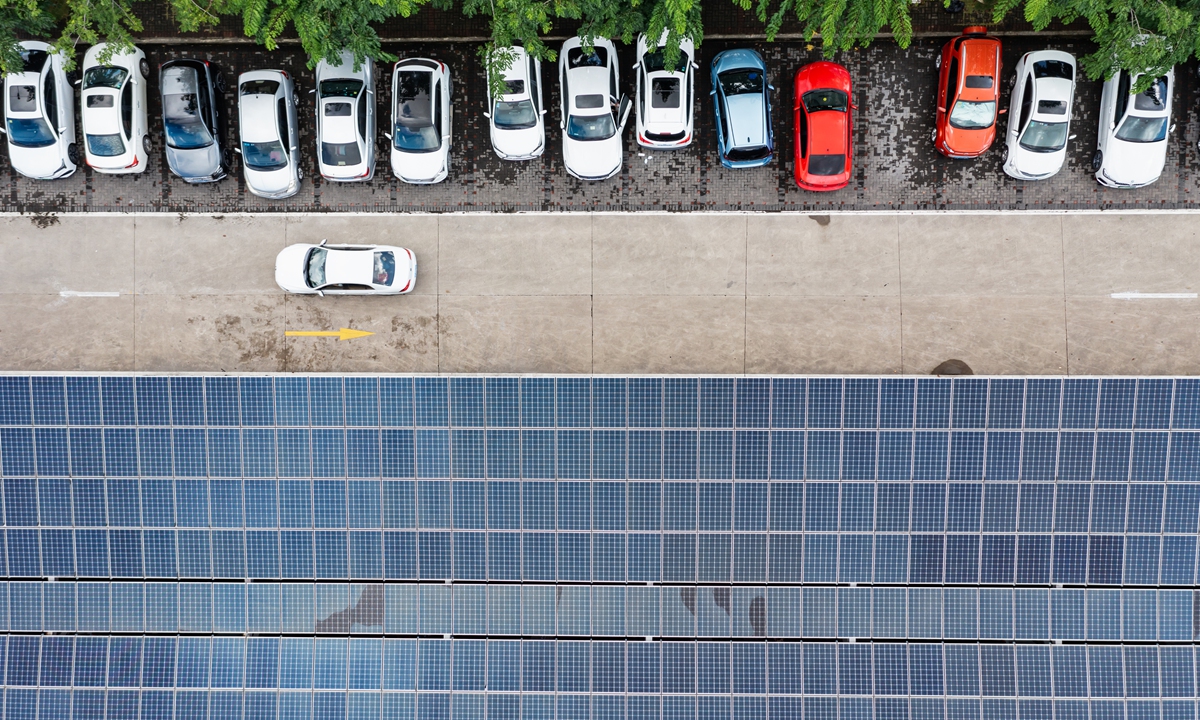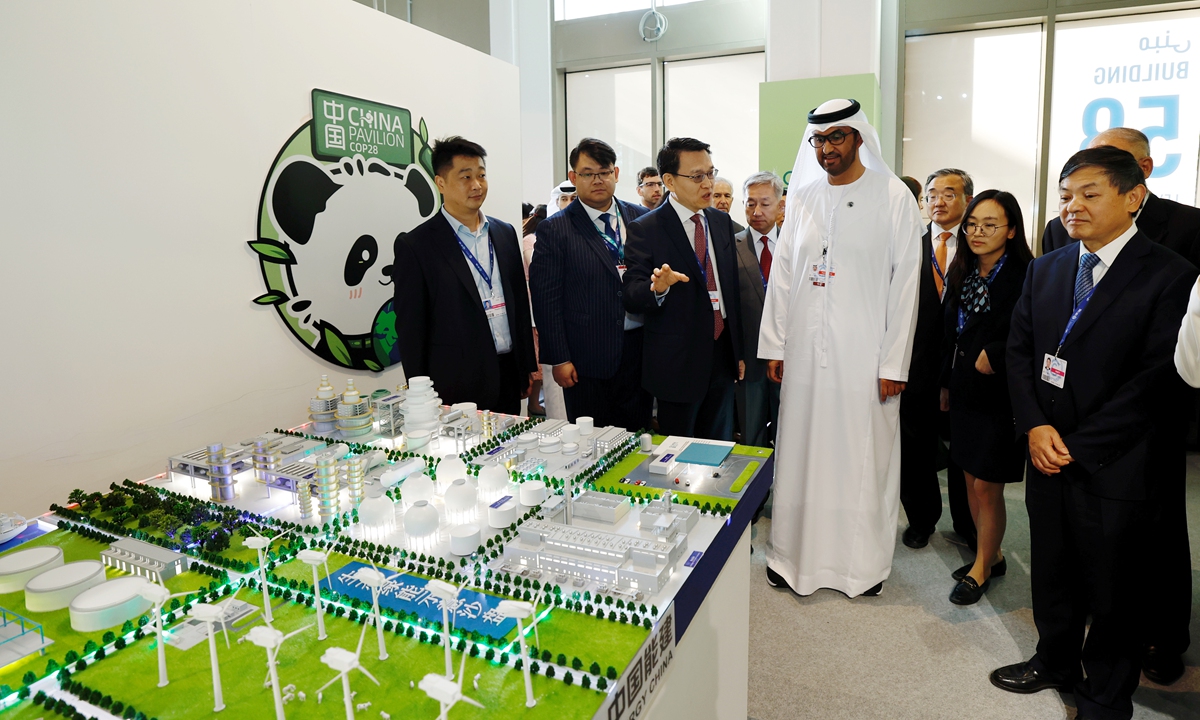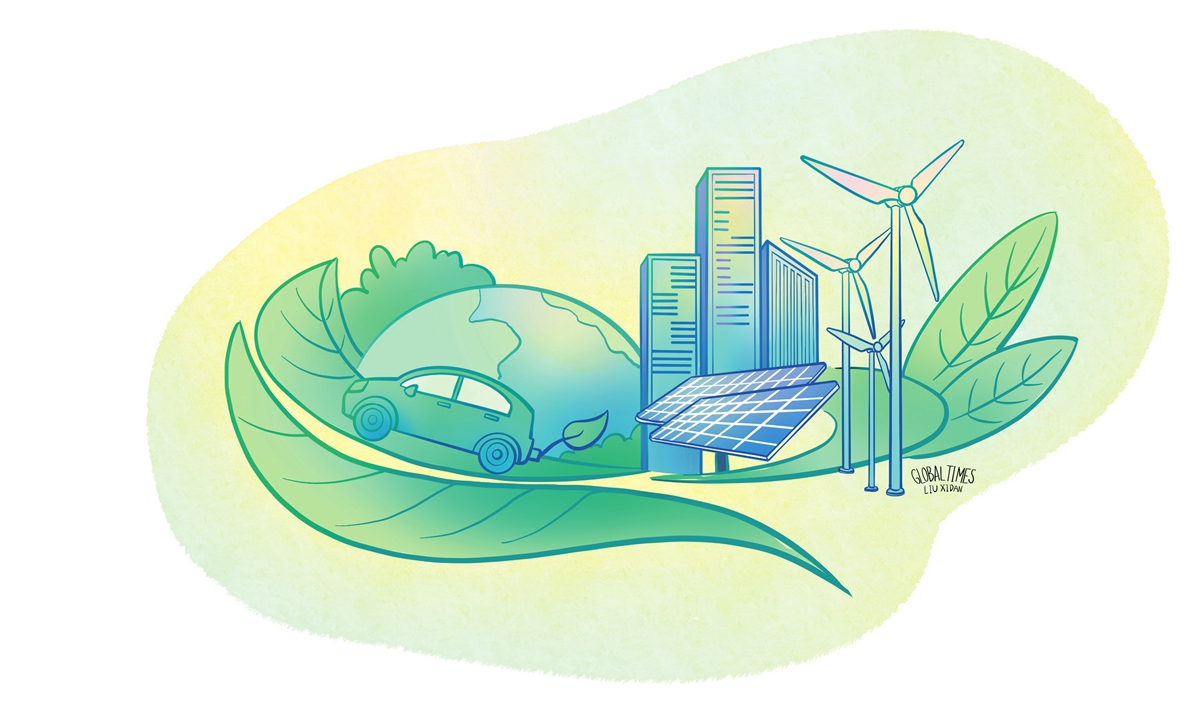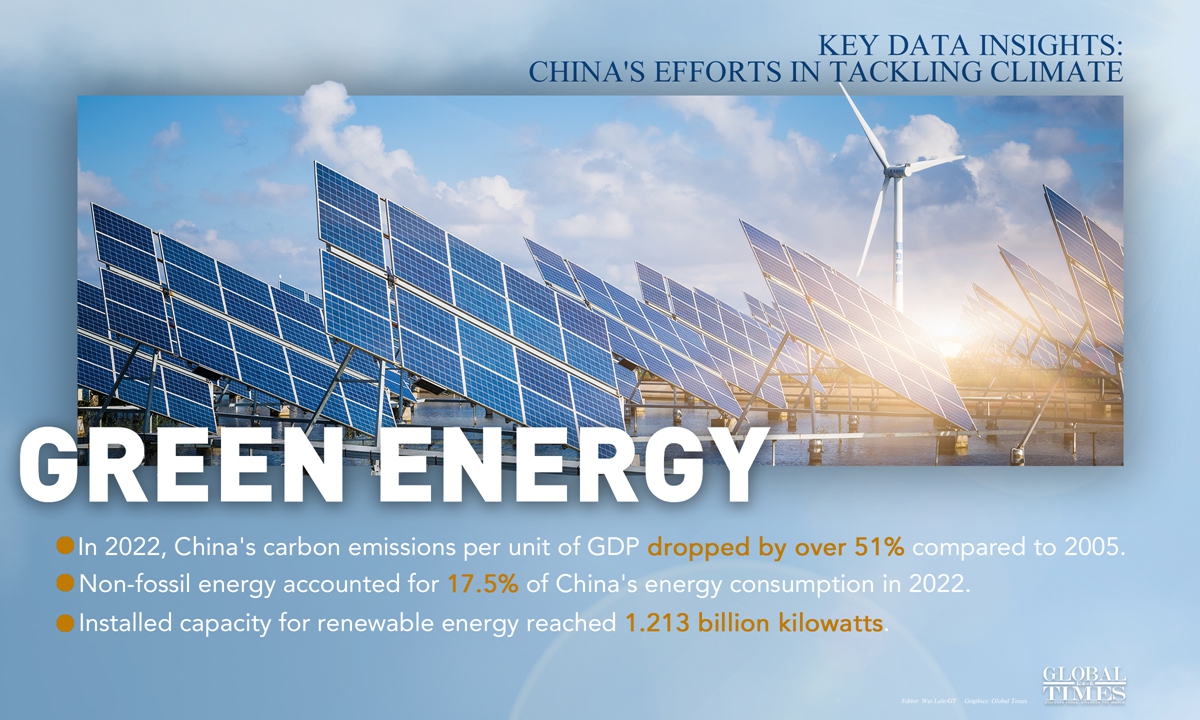China-EU green cooperation carries great potential in 2024 despite EV dispute: experts
Brussels urged to be cautious in its anti-subsidy probe of Chinese EVs

Economists' VIEW logo

Photo: VCG
Editor's Note:
As the COP28 conference opened on Thursday with a resounding call to accelerate global climate action, the green economy has become a hot topic. In China's pursuit of high-quality and low-carbon development, green renewable energy and electric vehicles (EVs) have rapidly gained momentum, and become key drivers of Chinese economy.
Looking ahead to 2024, will China's green exports maintain a high-speed growth? What external environment will China's green industry face? How should green cooperation be further promoted between China and Europe, one of China's important export destinations? Three economists share their views as below.
Huo Jianguo, vice chairman of the China Society for World Trade Organization Studies in Beijing
One focus of attention for China's green exports next year is the European Commission's anti-subsidy investigation into Chinese-made EVs. I think the investigation may not necessarily lead to actual measures. China can communicate and negotiate with the EU side on the issue, while European companies may also contribute their efforts to help mitigate a potential trade dispute. So it remains to be seen whether the EU trade policy environment will see a change next year.
Historically speaking, the EU did not adopt as many countervailing measures as the US did. In fact, many believe that the investigation is a tool that some European politicians are using to show to Washington their tough stance toward China.
From the perspective of stabilizing economic development, I think the EU should take a cautious approach toward the anti-subsidy probe. If it decides to impose additional tariffs on Chinese EVs, it could have a relatively big impact on China-EU trade and investment relations, which may in turn hurt the EU's interests in terms of industry chain cooperation between Chinese and European companies.
Many CEOs and senior executives of European auto companies have visited China in recent months, and they are largely opposed to the anti-subsidy probe.
Chinese consumers may receive some subsidies when buying EVs, but there is no subsidy available for EV makers in China. Many of China's EV makers are private companies that are highly competitive and cost-efficient. So the investigation is unlikely to gather any factual evidence about subsidizing.
There is actually great potential for cooperation in green industries between China and the EU, and protectionist measures are harmful for both sides. We still hope the issue could be properly addressed through consultation and communication.
Mei Xinyu, a research fellow at the Chinese Academy of International Trade and Economic Cooperation
The future of China's green exports mainly depends on two factors. One is whether the external market will recover or remains to be depressed. If the external market continues to recover, demand for green products will undoubtedly rise. If it goes into recession or turns bearish, that's certainly not good for exports. And there is great uncertainty about the economic prospects next year, because the possibility that some Western economies may slip into a recession cannot be underestimated.
The second factor pertains to the trade policy environment of the external market. Since Chinese EVs are mainly exported to Europe, whether China's green exports will continue their strong momentum depends on whether the costs of Chinese EVs can fall fast enough to offset the impact of any European trade measures. If Chinese EV makers can reduce costs and improve efficiency faster than the trade barriers arise, then it will not hinder their business.
If China and the EU want to promote green industrial cooperation, they need to adhere to two principles: giving enough freedom to technological innovation and sticking to free trade.
The crux of overcoming export pressure remains the same: technological innovation in our own emerging industries. Technological innovation can help increase efficiency and reduce costs. On this basis, we can strive to improve trade policy environment. With regard to industrial development, it is impossible to rely on diplomatic maneuvers to win development space. The only solution lies in the vitality and competitiveness of our own industry.
Cui Hongjian, a professor with the Academy of Regional and Global Governance with Beijing Foreign Studies University
Although the EU's China policy keeps fluctuating, its stance on climate change toward China is relatively stable. Climate change is currently the most frequently discussed topic in the course China-EU cooperation. Both sides have formed a consensus to continue to deepen their cooperation on fighting global warming.
China-EU climate cooperation involves several aspects. Both China and the EU have adopted a green transformation agenda as an important part of their domestic development strategy, so the overall direction is consistent in multilateral climate dialogues as both sides are committed to improving climate change responses and shouldering their responsibilities.
But, some frictions are sometimes seen between China and the EU, regarding green industry development and technology cooperation. For instance, the European Commission has launched an anti-subsidy probe into Chinese-made EVs. The EV industry has emerged and witnessed rapid growth in the world for the sector is environment friendly, but some Europeans view the industry from the perspective of economic security, and believe the two sides are competing in the EV industry.
China and the EU should further promote their climate cooperation, and expand consensus through climate dialogues, as cooperation should be the main tone for developing China-EU green supply chains.
British investment minister Dominic Johnson on Monday said he was working to attract Chinese carmakers to build a factory in the country, and that investment from China was crucial to meeting environmental targets. If political interference can be eliminated, cooperation between China and the UK in the field of controlling climate change is promising.
Just talking about climate change and green transformation may mean that China-UK cooperation could have a demonstration effect on China-EU relations. Some anti-China forces in the UK may try to politicize economic issues, but this is not beneficial for the UK itself.
If the UK really cares about its post-Brexit economic prospects, and wants to accelerate its relationship with China - its important economic partner - to a new height, climate change and green transformation are good starting points. I hope the UK does not miss this opportunity.



